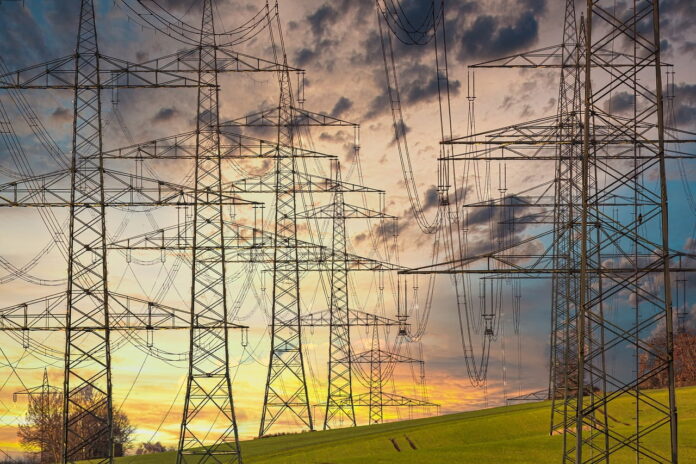The relationship between humanity and energy has been a defining aspect of our development and progress. From the discovery of fire to the industrial revolution, and the digital age, energy has been the engine of human civilization. However, the environmental cost of our energy use has become increasingly apparent, leading to a growing eco-awareness in how we produce and consume energy. This article explores the evolution of this consciousness, highlighting key moments and innovations that have shaped our journey towards a more sustainable relationship with our planet.
The Dawn of Environmental Consciousness: Tracing the Roots of Eco-Awareness in Energy Use
The roots of environmental consciousness in energy use can be traced back to the late 19th and early 20th centuries. As industrialization spread across the world, so did the pollution and environmental degradation it brought with it. Visionaries like John Muir and Henry David Thoreau in the United States began advocating for the preservation of nature, laying the groundwork for the modern environmental movement.
In the 1960s, Rachel Carson’s seminal work “Silent Spring” brought widespread public attention to the negative impacts of pesticides, but it also sparked a broader awareness of environmental issues, including energy production and consumption. The 1970s oil crisis further highlighted the vulnerability of relying on fossil fuels, leading to the first serious considerations of alternative, renewable energy sources.
The establishment of Earth Day in 1970 and the creation of environmental protection agencies signaled a growing institutional recognition of the need for eco-awareness in energy policy. The subsequent decades saw the introduction of legislation aimed at reducing pollution and conserving energy, such as the Clean Air Act and the Energy Policy and Conservation Act in the United States.
Despite these early steps, the global energy infrastructure remained heavily reliant on fossil fuels. The environmental consciousness that began to emerge was often overshadowed by economic and political interests, setting the stage for more radical changes in the years to come.
The Green Revolution of the 20th Century: Milestones in Sustainable Energy Development
The latter half of the 20th century witnessed what can be termed the Green Revolution in energy development. The growing environmental movement of the 1970s and 1980s, bolstered by scientific evidence of human-induced environmental damage, led to increased public demand for cleaner energy solutions.
One of the milestones of this period was the development and commercialization of renewable energy technologies. Wind and solar power, once considered niche and impractical, began to benefit from government subsidies and technological advancements, reducing costs and improving efficiency.
The 1992 Earth Summit in Rio de Janeiro marked a pivotal moment in international environmental policy, resulting in the United Nations Framework Convention on Climate Change (UNFCCC). This agreement laid the groundwork for future global efforts to reduce greenhouse gas emissions, acknowledging the critical role of energy in addressing climate change.
Throughout the 1990s, sustainable development became a key objective for many governments and organizations. The Kyoto Protocol of 1997 set binding emission reduction targets for participating countries, further cementing the link between energy policy and environmental responsibility.
The Turn of the Millennium: A Global Awakening to Climate Change and Renewable Resources
As the new millennium dawned, the reality of climate change became impossible to ignore. The Intergovernmental Panel on Climate Change (IPCC) released assessments that made clear the human impact on the planet’s climate, primarily through the burning of fossil fuels.
The early 2000s saw a surge in international cooperation on climate issues. The European Union established its Emissions Trading System in 2005, pioneering a market-based approach to reducing greenhouse gas emissions. Meanwhile, the renewable energy sector experienced unprecedented growth, with global wind power capacity increasing by over 25% annually in some years.
The landmark Paris Agreement of 2015 brought together 196 countries in a collective effort to limit global warming to well below 2 degrees Celsius above pre-industrial levels. This agreement underscored the necessity of transitioning to sustainable energy systems and inspired nations to set ambitious renewable energy targets.
Advancements in technology also played a crucial role during this period. Improvements in battery storage, smart grid technology, and energy efficiency measures allowed for greater integration of renewable resources into existing energy grids, making the transition to clean energy more feasible than ever before.
The Present and Future of Energy: Innovations and Policies Shaping an Eco-Friendly World
Today, eco-awareness in energy use is no longer a fringe concern but a central issue in global policy and economic planning. Renewable energy sources like wind, solar, and hydroelectric power are now competitive with, or even cheaper than, fossil fuels in many parts of the world.
Innovations such as electric vehicles (EVs), green buildings, and decentralized energy systems are transforming the way we consume energy. Governments and corporations alike are committing to net-zero emissions targets, recognizing the dual benefits of addressing climate change and fostering economic growth through green technology.
Policies such as carbon pricing, renewable portfolio standards, and feed-in tariffs are driving the adoption of clean energy. International collaborations, like the International Solar Alliance, are facilitating the sharing of technology and best practices between nations.
Looking to the future, the energy landscape is set to continue its transformation. Emerging technologies like advanced nuclear reactors, carbon capture and storage, and next-generation renewables hold the promise of a truly sustainable energy system. The challenge will be to ensure that this transition is just and equitable, providing access to clean energy for all and leaving no community behind.
The timeline of eco-awareness in energy use reflects humanity’s growing understanding of our impact on the planet and the urgent need for change. From the early voices calling for conservation to the global movements demanding action on climate change, this journey has been marked by both challenges and triumphs. As we look ahead, it is clear that the choices we make today will shape the future of our planet and the legacy we leave for generations to come. With continued innovation, collaboration, and commitment, we can forge an energy future that is both sustainable and prosperous.
